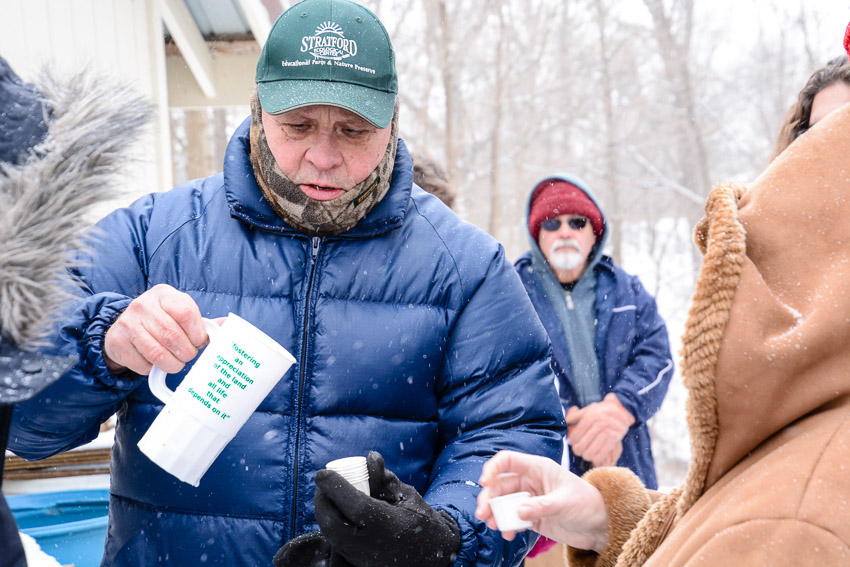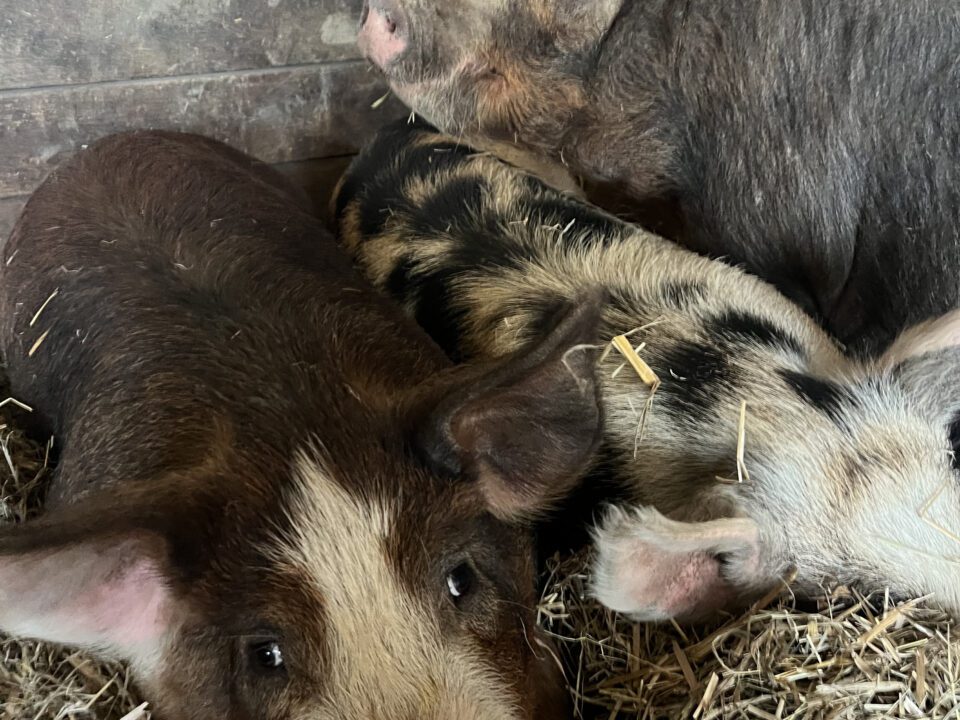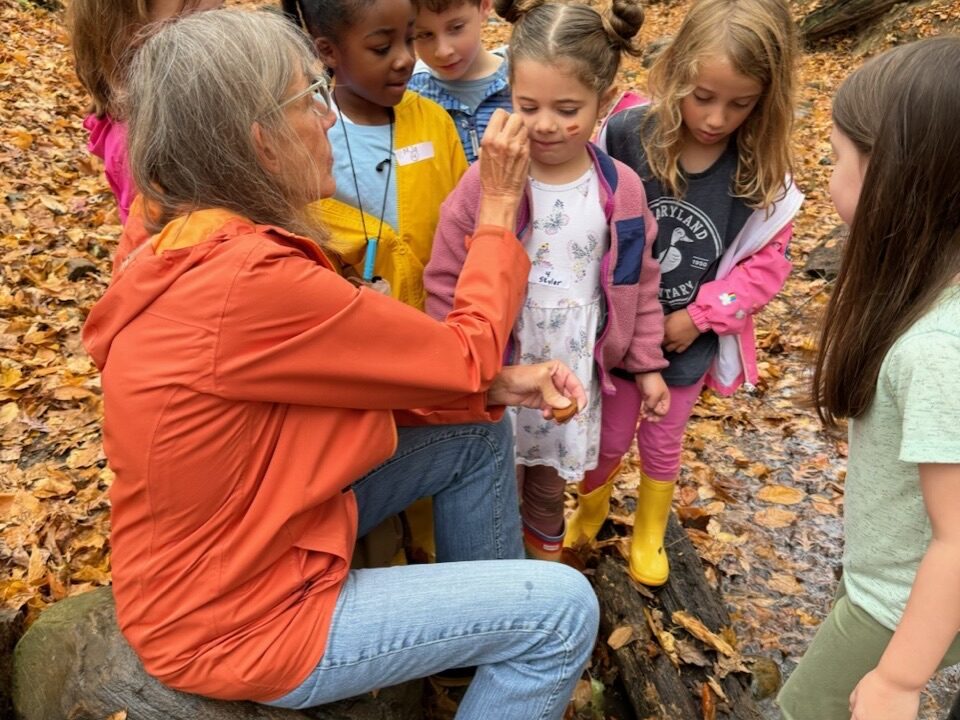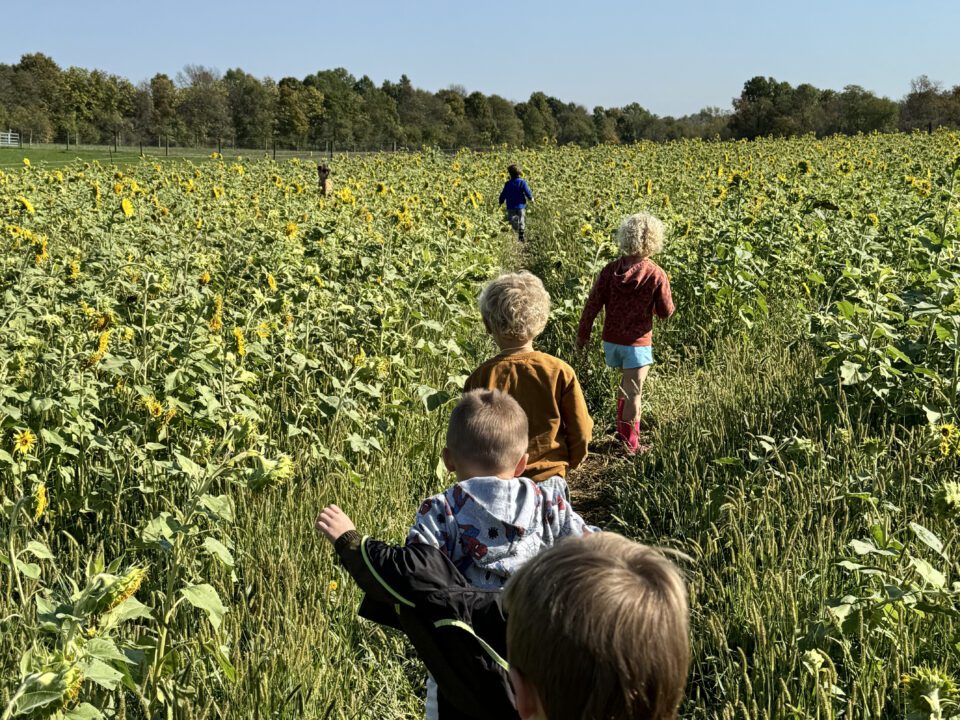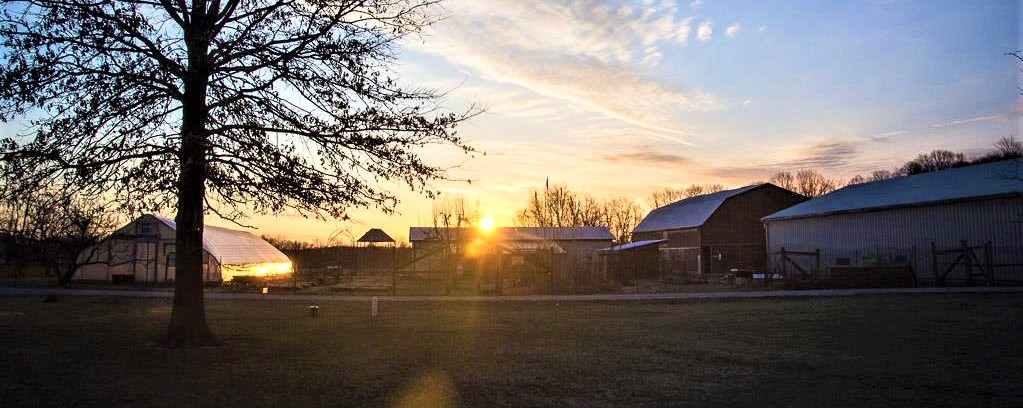
A Cloven Hoof Buried Stratford’s Newest Intern’s Ring
November 1, 2013Surviving on a Livestock Farm During a Polar Vortex
January 20, 2014Published in The Delaware Gazette: December 21, 2013
The first words out of Farmer Jeff’s mouth when I asked him what was uppermost in his mind at Stratford Ecological Center on Liberty Road, during the month I recently spent in England, were: “The Weather.” Whilst my husband and I had been experiencing unusually mild and remarkably rain-free weather in England, Ohio was recording temperatures twenty degrees below normal with snow cover. It affected more than just us, with our twenty-hour delay reaching home after we landed at Chicago’s O’Hare airport!
The feed corn remains in the field. The snow acts as a blanket and the ground does not freeze. It will take a thaw, followed by a hard freeze, before we can safely take the harvester onto the muddy ground. The ears are not affected by the delay, but the deer are no doubt taking advantage of the situation and gorging themselves. Last year’s corn stocks are good and will easily carry us through the winter, so there is no pressure to risk getting stuck.
All the animals are hunkering down in the barn and conserving energy to keep warm. One night the temperature registered 3 degrees F. They are not bawling or anxious, due to lack of fresh grass. In fact, they are showing no aggression at hay feeding time, even politely allowing their neighbor plenty of space. Despite the early start to winter, and thanks to a near record loft-full of hay, there is no chance we will run out.
The gates from the barn pens were open to the barn yard. However, the sheep pens will be closed soon, as there is a chance we will start lambing by Christmas and don’t want lambs dropped on the snow. The Tunis ram has run with the flock all year, and usually after the first of the spring lambs have been weaned those ewes come into heat. This happened in mid July, and with a gestation period of 150 days, we need to be prepared.
As for the goats, a pure bred Toggenburg buck was purchased on December 5 to replace our colorful Boer/Nubian buck. He is young, having been born last spring, but he’s a good size. Before he arrived he had already proved himself with nannies brought in to mate and return home the same day. He has joined our nannies, all of whom are in reproductive sync and about to start a new cycle, so kids can be expected in May.
Farmer Jeff purchased a salt block for the sheep and goats with high selenium content. The animals gravitated to it instantly, as if they knew our pasture was low in the mineral and they need it. The selenium will also help to control parasites and keep their hooves healthier.
The honeysuckle poppers have returned now there is no chance of getting stung. Until the ground freezes, Brian and Spencer can use their school break to pull up more of the invasive bushes. The greenhouse plants are small but thriving when I expected them to have gone dormant. The snow which slid off the roof has piled against the sides and is adding insulation. People are coming for fresh greens and we continue to supply PIN.
During our stay in England we laughed at a sign posted on the South Downs forbidding metal detecting. Our fall Stratford intern, who lost a valuable ring whilst throwing out hay for the livestock, and found it using a metal detector, would have been out of luck there. As we walked the route known as The South Downs Way, on the gently rounded hills separating the English Channel from the flat weald of Sussex, about fifty miles from London and the same from Dover, we discovered the reason for the notice. There were ancient mounds of earth and flint called Tumuli dotted all over the downs. Each Tumulus covered the tomb of a great chief dating back to the stone and the bronze ages, and it was apparent they wanted any artifacts to remain buried with them.
Finding the balance between nature and people continues just as much in England as in the U.S. Badgers have been protected in England since 1999, and their numbers have quickly increased. Unfortunately, they appear to be carriers of TB and can infect cattle, llamas and alpacas, and culling has taken place in specific areas. Fox hunting, which was forbidden in recent years, is now being reconsidered as a way of controlling their numbers. Poaching of hares and other animals and birds is on the rise on private land, rarely for food, without thought for the victim or land. I can only hope places like Stratford will continue to help people understand the relationship between all living things and their environment, and their actions will be based on a sounder foundation.
We will be closed from Saturday, December 21 through New Year’s Day. We hope you enjoy the holidays. Our program calendar will be on our web site in January.


